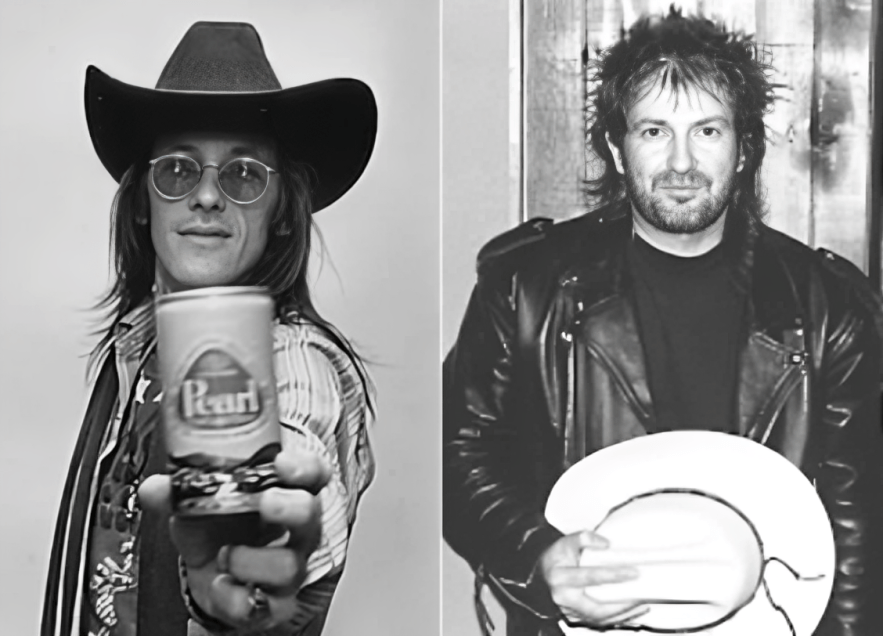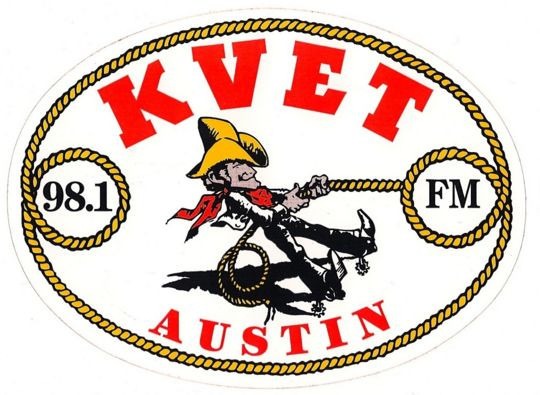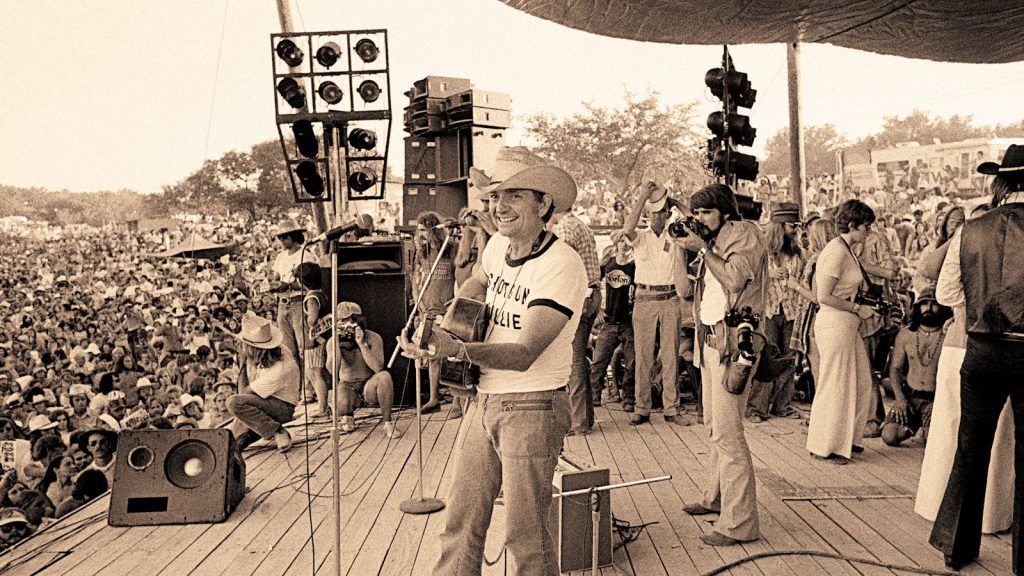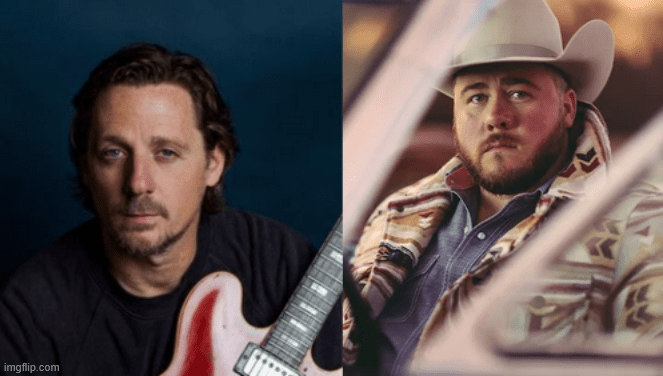Back in the 1970s, Austin, Texas, became the epicenter of a musical rebellion that reshaped country music, and its radio stations were at the heart of the Outlaw Country movement. Traditional country western station, KOKE-FM, relaunched In the summer of 1973 with 22 year old Joe Gracy in the 10AM to 2PM shift, called the “hippie drive-time” because that was about the time the stoners were dragging themselves out of bed.

Gracey, a passionate DJ and music enthusiast was fired in a regime change at KRMH and crossed the street to join KOKE-FM as the station transitioned from traditional country-western to a groundbreaking “progressive country” format. “I was sick of the artificial division between ‘hippies’ and ‘rednecks’ and I detected a serious malaise in rock music,” Gracey said in an interview in 1978, while talking about musical crossbreeding between rock & country. “Texas has always been a musical melting pot, and Austin is its cultural center of energy, so if anything big was going to happen, it had to be here.” Since “Progressive Country” sounded a little stiff, station manager Ken Moyer and program director Rusty Bell tagged the format “Super Roper.” Gracey played almost as many Austin musicians as national acts, because the locals- B.W. Stevenson, Rusty Wier, Michael Murphey, Willie Nelson, Jerry Jeff Walker, & Asleep at the Wheel were getting big across the country.

His influential presence helped shape the station’s eclectic playlists, amplifying the raw, rebellious sound of Austin’s Outlaw Country movement. The format flatly rejected Nashville’s polished, commercial sound in favor of raw, authentic music that blended country with rock, blues, and folk influences. Spearheaded by artists like Willie Nelson, Waylon Jennings, and Jerry Jeff Walker, the station captured the spirit of Austin’s counterculture, appealing to both hippies and rednecks who gathered at venues like the Armadillo World Headquarters.

KOKE’s freewheeling playlists featured local talents such as Ray Wylie Hubbard and Doug Sahm alongside national acts, creating a unique sound that Billboard recognized in 1974, naming KOKE the most innovative radio station in the country. With Joe Gracey and frequent on-air appearances by Nelson himself, the station became a cultural hub, amplifying the gritty, independent ethos of Outlaw Country.
KOKE-FM’s format was a deliberate departure from the mainstream, reflecting Austin’s growing identity as a haven for nonconformist musicians. The station’s progressive country image, coined after programmers realized “country rock” wouldn’t sell to advertisers, embraced a diverse playlist embodied the eclectic spirit of the movement. This format resonated with Austin’s mixed crowds of long-haired hippies and traditional country fans, fostering a sense of community and rebellion against Nashville’s sanitized sound. The station’s small studio on North Lamar, near a gun store, became a pilgrimage site for musicians and fans alike, with KOKE’s bumper stickers a common sight on Austin’s streets in the mid-1970s.

Another key player in Austin’s radio scene was KVET, a longstanding country station that, while not exclusively Outlaw, also contributed to the city’s vibrant music culture. Launched in 1946, KVET adopted a formatted country approach by 1969, playing a mix of traditional and emerging Outlaw sounds, with DJs like Sammy “Geezinslaw” Allred and Jerry Gee. While KVET leaned more toward mainstream country, it occasionally featured Outlaw artists, complementing KOKE’s edgier selections.

KVET’s commitment to local music helped promote Texas artists like The Flatlanders and Billy Joe Shaver, who were integral to the Outlaw movement. However, the station’s more conservative approach contrasted with KOKE’s radical departure from Nashville’s norms, as evidenced by its brief banning of records with mild profanity in the 1970’s, including Waylon Jennings song “The Taker,” written by Kris Kristofferson and Shel Silverstein, which contained lines like “he’ll do her the way that I’d never, damned if he won’t do her wrong” and “he’ll take her to places and make her fly higher than she’s ever dared to.” The station’s president, John R. Kreiger, initiated the ban in response to what he perceived as an influx of records containing profanity, and drug references, reflecting the era’s tension between traditional country values and the emerging, edgier Outlaw sound. But still together, these stations created a dynamic radio landscape that showcased Austin’s role as a breeding ground for musical innovation.

The legacy of Austin’s 1970s Outlaw Country radio stations not only popularized a genre but also helped define the city’s cultural identity. KOKE-FM’s bold programming laid the groundwork for Austin’s reputation as the “Live Music Capital of the World,” with its influence extending to festivals like South by Southwest, and Willie Nelson’s 4th of July Picnic as well as television shows like Austin City Limits. The stations’ emphasis on authenticity and artistic freedom inspired a generation of musicians to reject commercial constraints, paving the way for Americana and alternative country genres.

Today modern artists like Sturgill Simpson and Josh Ward owe a debt to the Outlaw pioneers, whose music was first amplified by KOKE and KVET. The revival of KOKE-FM in 2013, with Willie Nelson recording the station’s ID and DJs like Bob Cole carrying the torch, underscores the lasting impact of Austin’s 1970s radio scene, which remains a touchstone for those who value music that speaks to the heart of rebellion and proud American individuality. The stations’ emphasis on authenticity and artistic freedom inspired a generation of musicians to reject commercial constraints, paving the way for Americana and alternative country genres. In 2025, Austin’s radio landscape continues to reflect this heritage, with stations like 95.9 Texas Country (KKMJ-HD3), owned by Audacy, focusing on classic country that echoes the Outlaw spirit, and KVET (98.1 FM), which maintains its role as a platform for country classics, occasionally featuring modern artists influenced by the 1970s movement. While KOKE-FM’s original progressive format has evolved, its 2013 revival and continued presence highlight Austin’s enduring commitment to the raw, rebellious sound of Outlaw Country. May this music live forever.
